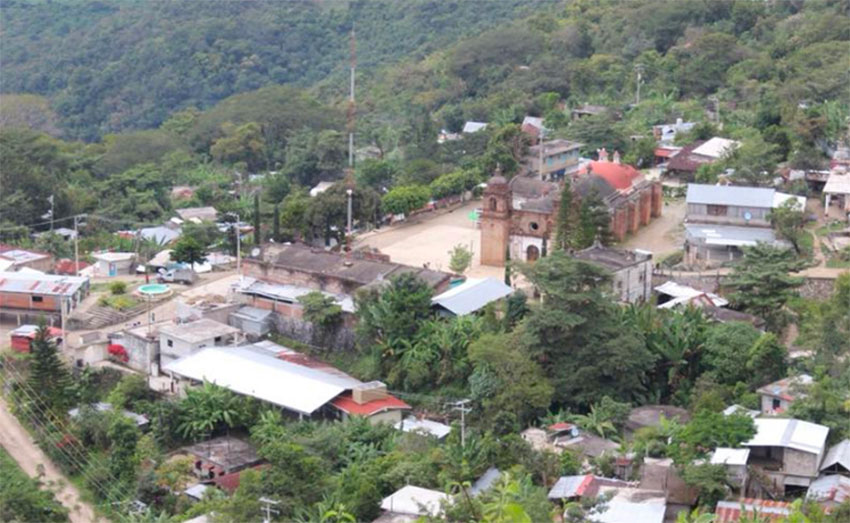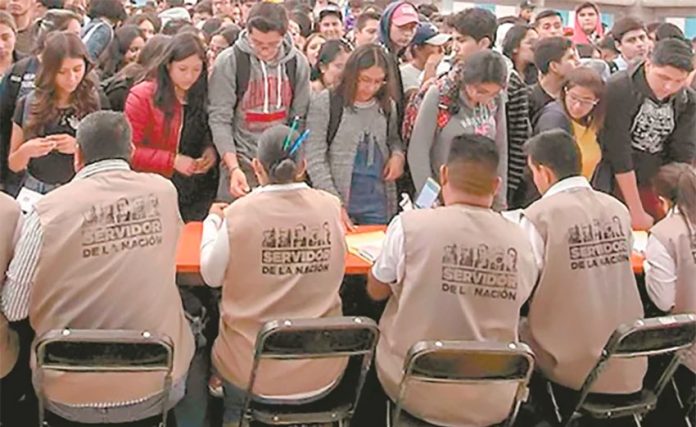Drug cartels, fuel theft gangs, community conflicts and insecurity in general are hampering the delivery of the federal government’s social programs in 50 municipalities, according to an official report.
Obtained via a freedom of information request by the newspaper El Universal, the Welfare Secretariat report says that government employees responsible for conducting censuses to determine who is eligible for government support and explaining to citizens how they can register for programs have suspended their activities or only carry them out intermittently in high-risk municipalities.
Eighteen of those are in Puebla, 14 in Oaxaca, 11 in Tamaulipas, five in Chiapas and one each in Sonora and Durango.
A main aim of the social programs, which offer employment to disadvantaged people and provide payments for pensioners, the disabled and students, is to address the root causes of crime and violence, such as poverty and lack of opportunity.
Ironically, crime and violence are hindering the delivery of the very government support whose intention is to combat them.
El Universal reported that some servidores, or national servants, as the employees tasked with promoting the social programs are known, have been mugged and even attacked with firearms. One government worker was shot and killed in Puebla, while another sustained a gunshot wound in a separate incident in the same state.
The safety of the national servants has also been threatened by political and social conflicts that plague some communities, according to the report.
In Puebla, criminal groups involved in the robbery of trucks and the theft of fuel from pipelines pose the main threat to the government employees, although drug gangs also have a presence in the state. The social program workers are closely watched by gang members and have been warned not to attempt to enter certain communities.
Among the 18 municipalities where the national servers have been unable to complete their work are state capital Puebla, fuel theft hub San Martín Texmelucan, and Tepeaca, which is part of the Red Triangle, a region notorious for the tapping of petroleum pipelines.
In Oaxaca, community and agricultural conflicts have proved to be the main impediment to the work of the employees, the report said.
Other factors that have kept the workers from carrying out their duties within the state include the high rate of homicides, the threat posed by armed men and the presence of hidden graves.

The Welfare Secretariat report said that national servants have been unable to enter the municipality of Santiago Xanica since September because a group called the Defense Committee of Indigenous Peoples has placed a blanket ban on the entry of security forces and federal government workers.
“We find ourselves in a position of not being able to attend to that municipality because the safety of the nation’s servants would be placed at risk,” the report said.
In San Pedro Ixcatlán, located on the banks of Lake Miguel Alemán, the discovery of “several clandestine graves on islands that belong to the municipality. . . create uncertainty and suspicion among residents towards [government] personnel carrying out fieldwork,” the Welfare Secretariat said.
Among other Oaxaca municipalities where the delivery of social programs has been affected are Juchitán, Tlaxiaco, San Francisco del Mar and Soyaltepec.
In the northern border state of Tamaulipas, the presence of armed groups involved in drug trafficking and other criminal activities has interrupted the work of the national servants in 11 municipalities including Mainero, Villagrán, Hidalgo and Miguel Alemán, all of which border Nuevo León.
However, Nuevo Laredo, located across the Rio Grande from Laredo, Texas, has proven to be the most difficult municipality in which to work.
Of the 115 most problematic locations that have been identified, 33 are in Nuevo Laredo. The city, a stronghold of the Northeast Cartel, is “controlled by organized crime,” the Welfare Secretariat said.
As is the case in Oaxaca, violence generated by community conflicts is the main barrier to the delivery of the government’s social programs in Chiapas.
Social conflicts and the presence of “apparent organized crime” have prevented national servants from going into eight communities in the municipality of Bochil, while they have been unable to enter five towns in Pueblo Nuevo Solistahuacán due to a territorial conflict.
In Chiapa de Corza, residents won’t let the government workers in because “they don’t want federal support,” the Welfare Secretariat report said, while the Zapatista Army of National Liberation, which has long had a testy relationship with President López Obrador, refuses to allow social program employees into the municipality of Tila.
The national servants have also been prevented from entering two communities in Acalá that are controlled by the National Front of Struggle for Socialism.
In Nácori Chico, Sonora, the work of the social program promoters has been made difficult by a turf war between rival criminal gangs, while the workers have been warned not to enter some parts of Tamazula, Durango.
Source: El Universal (sp)
